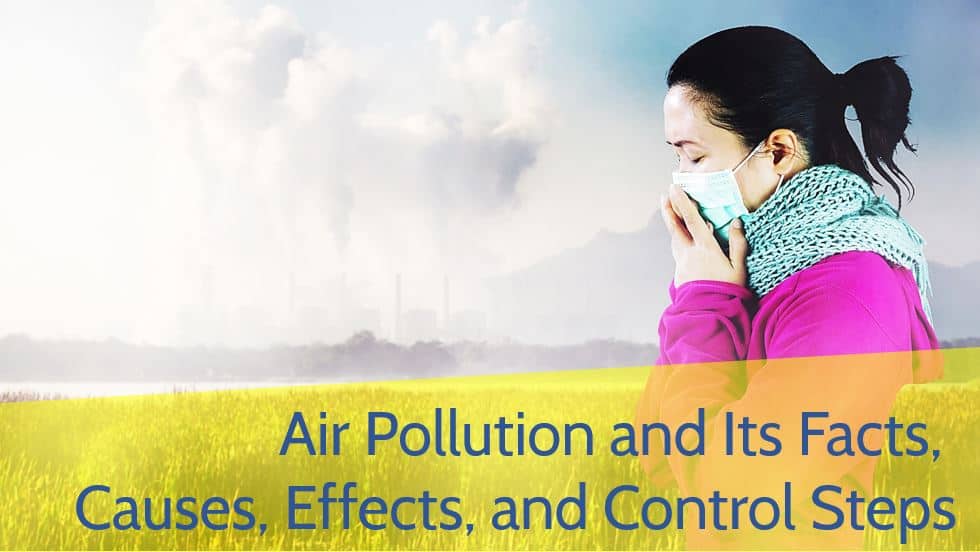
What causes the most pollution on Earth? What are the causes of environmental pollution? By use of pesticides at an increased level, this is necessary to keep diseases out of crops and to threaten animals to not to enter in the field of agriculture. Now, this also comes in the causes of pollution as it directly affects the soil fertility.
The following is a list of causes of air pollution that is not exhaustive by any means: Natural causes Volcanic activity: Active volcanoes release a huge amount of gases like sulphur dioxide and ash. Sulphuric acid droplets in aerosol form remain in the atmosphere for many days and even few years. Thermal pollution Global warming causes the waters to get heated up changing the ecological balance in them.
Warm water which was used as coolants in the industries being dumped as such in to the nearby water source causes damage to its aquatic residents. It is the addition of another form of any substance or form of energy to the environment at a rate faster than the environment can. The causes of environmental pollution are very varie and most are due to the activity of man. We live in a consumer society, where the useful life of a physical product is very limite and soon, it becomes trash that contributes as a further element to pollution. So an excess of noise in the outdoors leads to “ Noise Pollution ”. This can be experienced by too many vehicles honking at the roads, heavy machinery being operated in the open (for ex, a jackhammer), trains, clubs, over populated crowds and many more.
Noise pollution is known to cause mental stress and depression. Radioactive pollution is highly dangerous when it occurs. It can occur due to nuclear plant malfunctions, improper nuclear waste disposal, accidents , etc. But greenhouse gas is something that is at the top of that list.
It is the type of air pollution sources that is definitely one of the most harmful gases out there. There are certain natural sources which can be claimed to be the largest producer of such gases. Pollution is releasing harmful contaminants in to the environment causing instability and harm to the eco system.
Pollution is defined as An unwanted change in the environment which involves the physical, biological and chemical changes involving air, water and land which affects the human life in one way or the other. Pollution can take the form of chemical substances or energy, such as noise, heat or light. Pollution is the introduction of contaminants into the natural environment that cause adverse change. Damming of Rivers resulting on effects of downstream agriculture and fisheries.
With a growth in technology and modernization, pollution has excelled in which leads to human illness. There are several types of an environment which have seriously affected our life. Types and Causes of Pollution.

The term pollution refers to the act of contaminating ones environment by introducing certain hazardous contaminants that disturb the ecosystem and directly or indirectly affect the living organisms of that ecosystem. Pollution in general is the activity of disturbing the natural system and balance of an environment. In addition, air pollution creates an imbalance in the natural gases that make up our Earth’s atmosphere. Marine pollution is caused due to various reasons out of which most of the reasons are man-made.
Sometimes, it causes due to wastage dumped and sometimes due to ocean mining. Whatever is the cause but the fact is that marine pollution is causing hazardous effects on marine animals and vegetation. Big factories flush down waste products in the water, and this is one of the major causes of ocean pollution. On the other han ordinary people also cause water pollution and not just big factories. Everyone is guilty of pouring chemicals or detergents in their drains or toilets.
These gases disturb the natural composition of atmosphere and cause many health issues including severe breathing problems. Of all industrial waste, a huge amount is emitted into the air resulting in the air pollution. It is usually caused by the emission of polluting gases from the burning of fossil fuels in industry, car exhausts and air travel.
It can be limited by reducing the emissions that we create in both homes and businesses,. Moreover, winds can disperse pollutants, or in the opposite case, winds can contribute to higher pollution levels by bringing pollutants from remote hotspots.
No comments:
Post a Comment
Note: Only a member of this blog may post a comment.